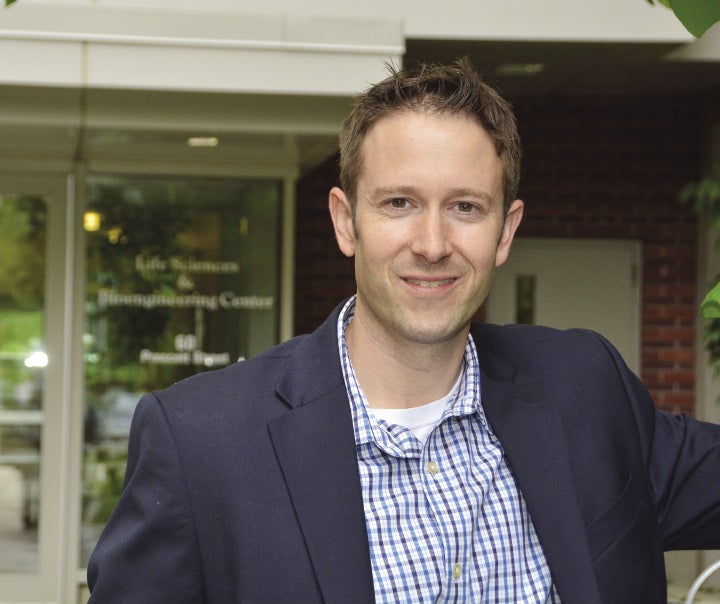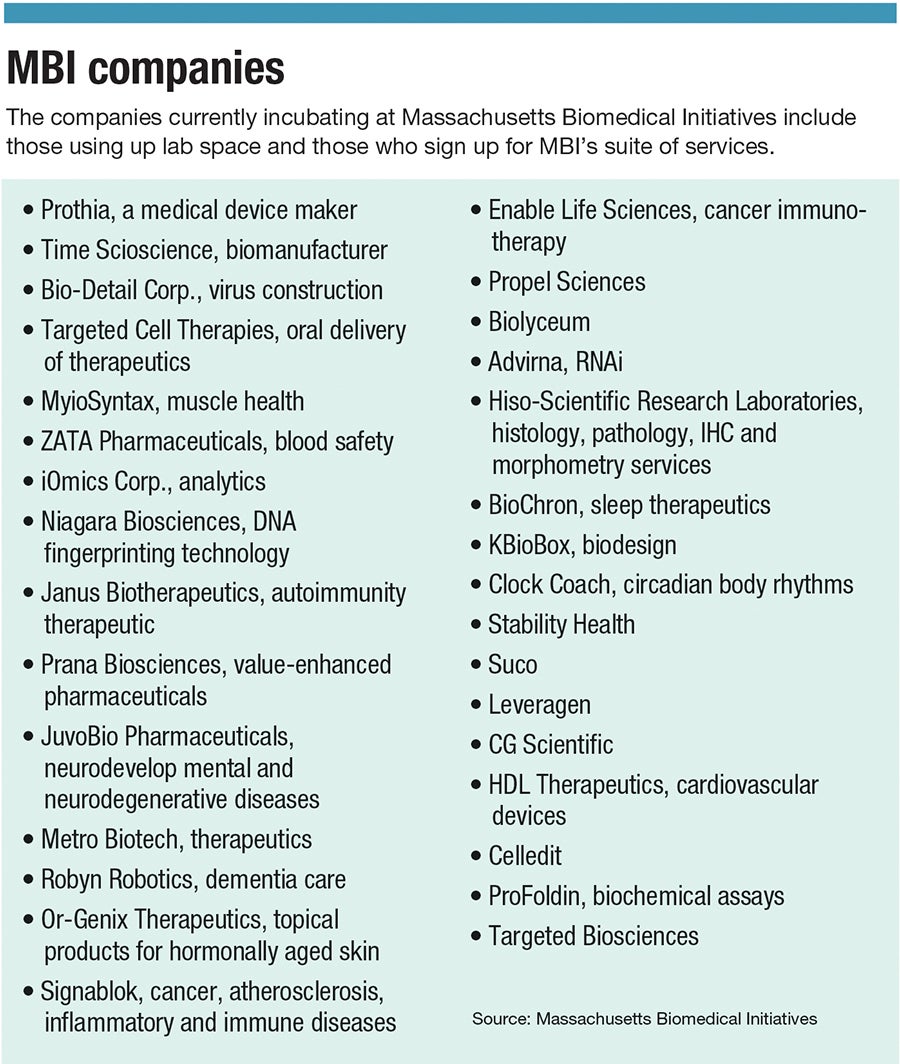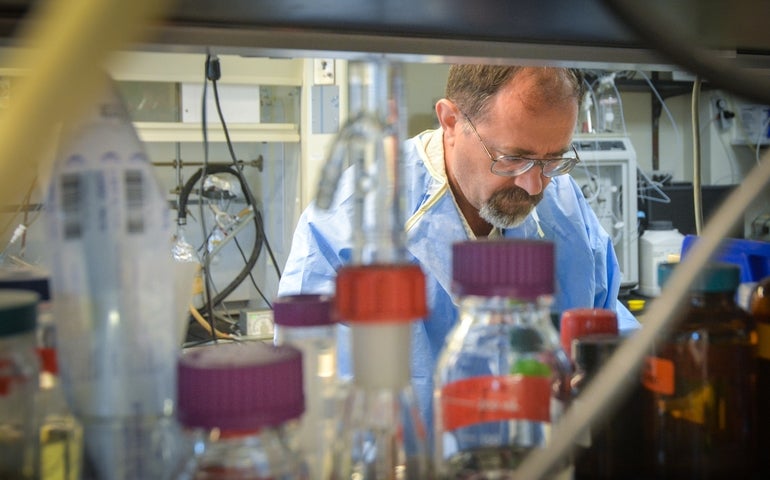Inside dozens of closet-sized laboratories in three different Worcester buildings is a goldmine of biotechnology brainpower and promising research just waiting for the right opportunity to explode onto the marketplace.
By the end of the year, that space will more than double and allow for companies to grow with Worcester biotech incubator Massachusetts Biomedical Initiatives.
The new space is the former Cogmedix facility at 17 Briden St. in Worcester. MBI, currently in two facilities at Gateway Park and another on Barber Avenue totaling about 16,000 square feet, will move into 20,000 square feet of space on Briden Street by the end of the year.
An additional 18 labs for early stage startup companies will be added, but MBI is hoping to expand its business model by adding suites of 1,000 square feet for companies not quite ready for the private real estate marketplace.
Cogmedix has already moved into a renovated West Boylston facility and will lease the space to MBI.
“This will give us an opportunity to keep these companies in the nest a little bit longer, help them grow sustainably and go from there,” said Jon Weaver, president and CEO of MBI.
Success stories
The incubator’s growth comes 35 years after its founding, which has seen a 77% success rate since 2000, the first year tracking began.
MBI’s success is clearly and proudly displayed along its walls, which are adorned with framed photos of MBI’s companies and their teams. It’s a cause for celebration every time a company is ready to leave the nest, Weaver said.

During a tour of MBI’s main facility at Gateway Park, Weaver casually rattled off several success stories:
Coley Pharmaceuticals was bought out by pharma giant Pfizer for $164 million in 2017.
The small team of Vivo Path was acquired by Charles River Laboratories for an undisclosed amount in 2014.
Averica Discovery Services, formerly a two-person team at MBI, now operates in an office park in Marlborough.
Perhaps the most notable was the acquisition of Blue Sky Bioservices, which was acquired by California biologics company LakePharma in 2016.
That Blue Sky transaction for an undisclosed amount allowed founder and former CEO Paul Wengender to start Greater Good Imperial Brewing Co. in Worcester, taking his expertise in fermentation to the world of craft beer.
Blue Sky Bioservices joined MBI in 2003 when the organization still operated space at the former Saint Vincent Hospital building at 25 Winthrop St.
“There were multiple facets of support that went beyond a real estate deal, which was accommodating in and of itself,” said Wengender.
An email to former MBI President and CEO Kevin O’Sullivan in 2003 brought the two together. Wengender said MBI’s marketing, networking, infrastructure and community connections made it the clear choice.
At the time, Blue Sky had a low level of investment of less than $1 million.
“Yet, we were made to feel really important by MBI,” Wengender said.
With the help of an office he still held at MBI after the Blue Sky sale, Wengender began contract brewing in 2017 and opened his Worcester location less than a mile from his old office in early 2018.
Bursting at the seams
It’s the current list of MBI companies that gets Weaver the most excited.
Histo-Scientific Research Laboratories, a research and service provider based at MBI, completed a merger and large investment in December to help the company grow from four employees to 15 by the end of the year. HSRL wants to triple its space and will move into 10,000 square feet in Marlborough.
ZATA Pharmaceuticals is the largest company at MBI, Weaver said. The firm specializes in technology sterilizing blood for transfusion, a method expected to significantly reduce the cost of screening blood for disease or pathogens before it is donated.

“It could be a potential $4-billion company, and it started in a closet here at MBI,” Weaver said.
ZATA, led by President & CEO David Tabatadze, has about seven employees and is quickly outgrowing its small MBI lab. ZATA and other startups champing at the bit to get their business off the ground need space. MBI has been at capacity for three years, and 30 and 50 companies ask about space each year.
“If we don’t have space, they end up somewhere else,” Weaver said. “When you have a startup, everything is about speed.”
Creating a new home in Worcester
Along with more space for companies not yet ready to fly the coop is the need to connect these fledgling companies with the institutional knowledge of how to run a successful biotech company.
To address that need, MBI has begun working with its startup companies to help formulate strategic plans, build out management teams, find business partners and connect with investors.
Once those startup drugmakers are fully established and ready to leave MBI, Worcester doesn’t have many opportunities to operate a biomanufacturing facility. The UMass Medicine Science Park and the Redstone Center on Union Street are fully occupied.
A fix is in the works. The Worcester Business Development Corp., – where Weaver got his start in business advocacy – is making headway on construction of a biomanufacturing park at the former Worcester State Hospital.
The park, branded as The Reactory, should provide much needed infrastructure once startups evolve into well established companies.
MBI, with its focus on building business plans and its new facility, intends to bridge that gap for the long haul.
“That’s why we think the biggest opportunities are in Worcester,” Weaver said.

